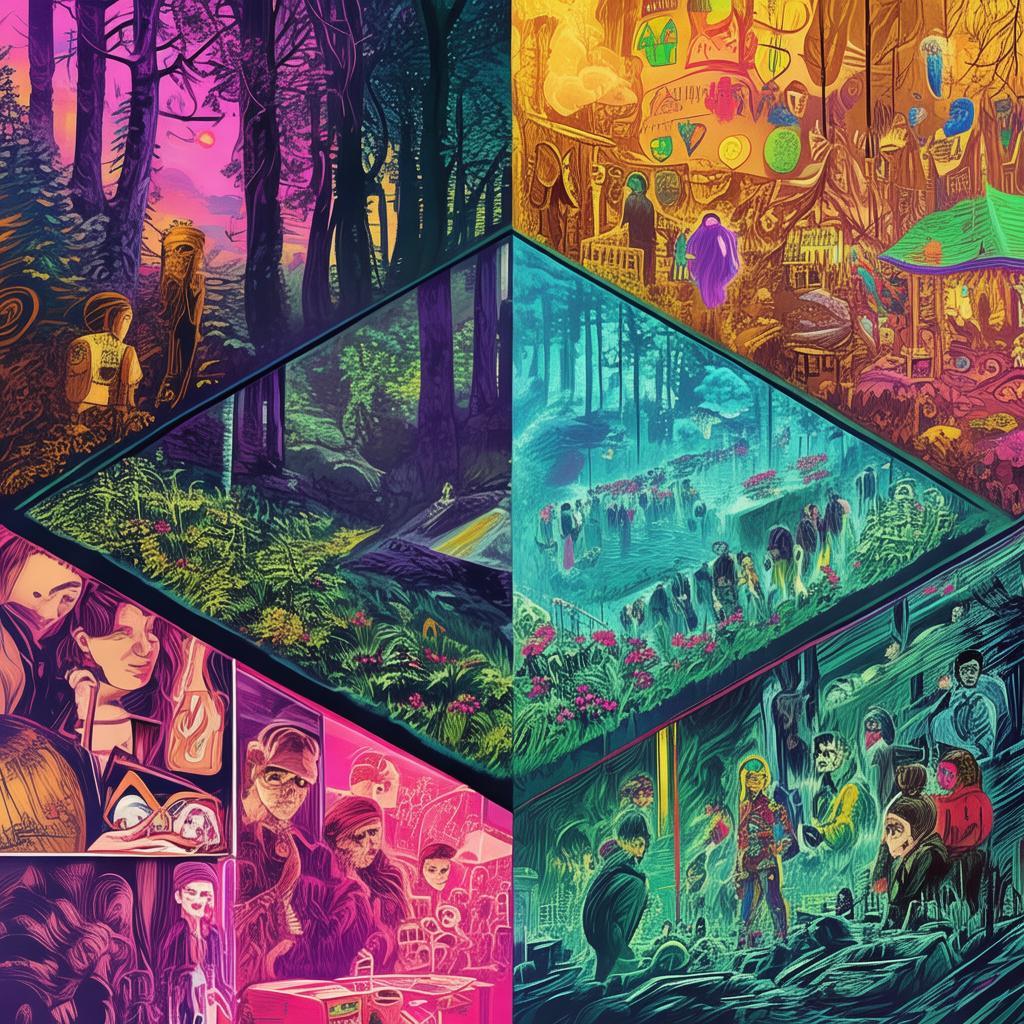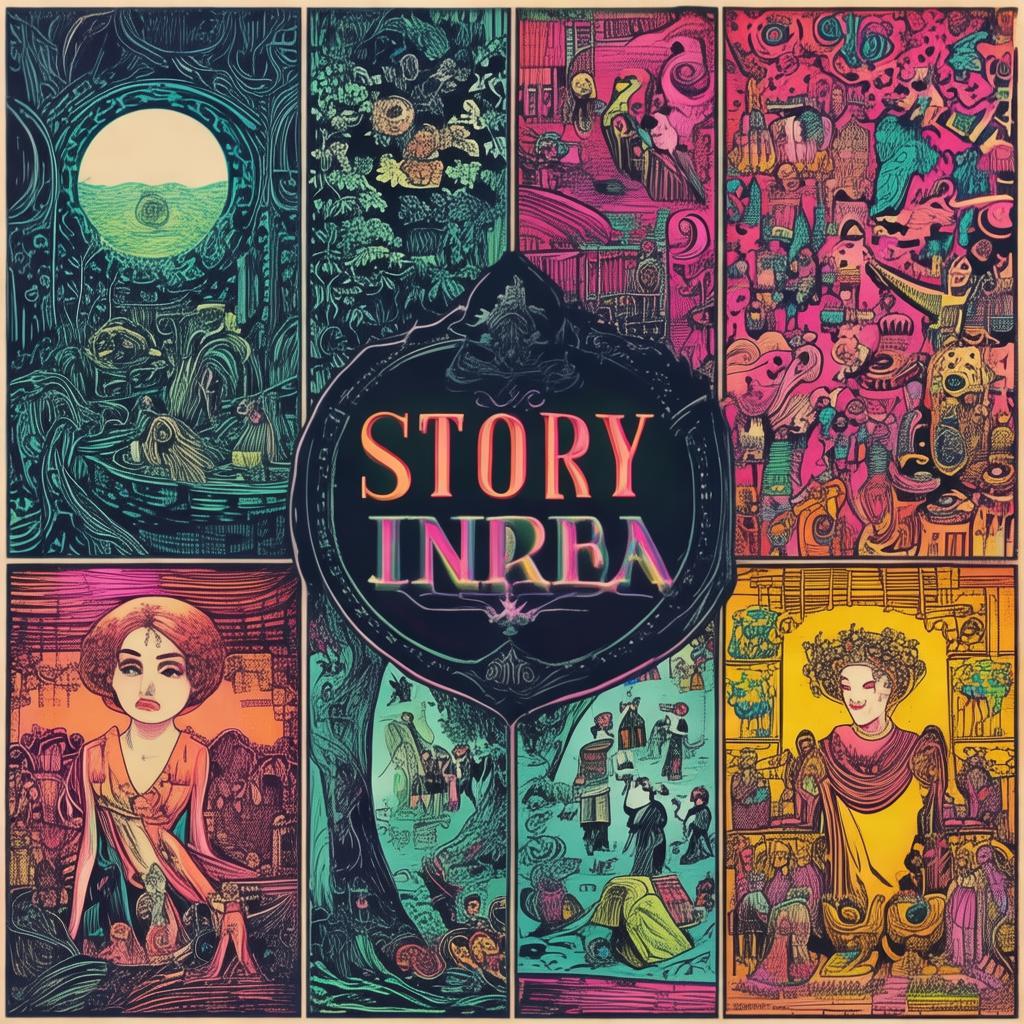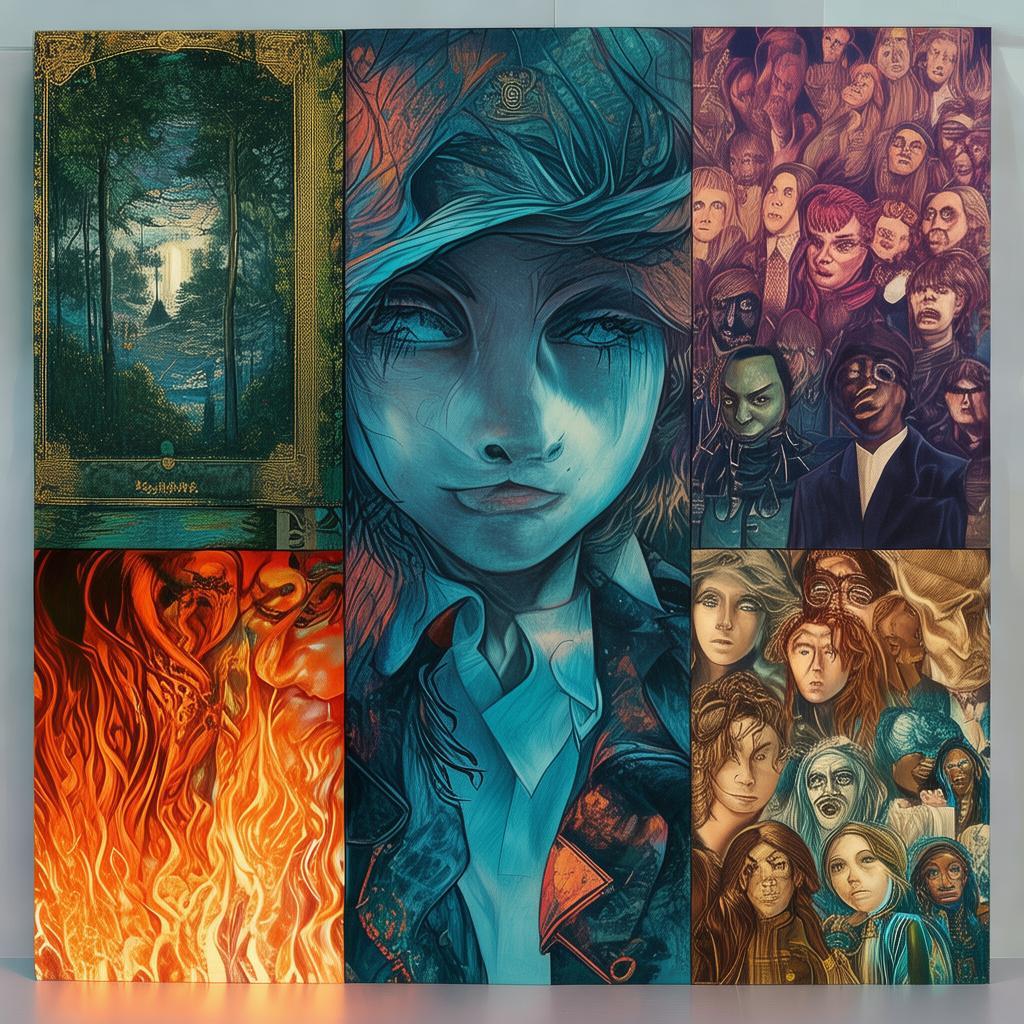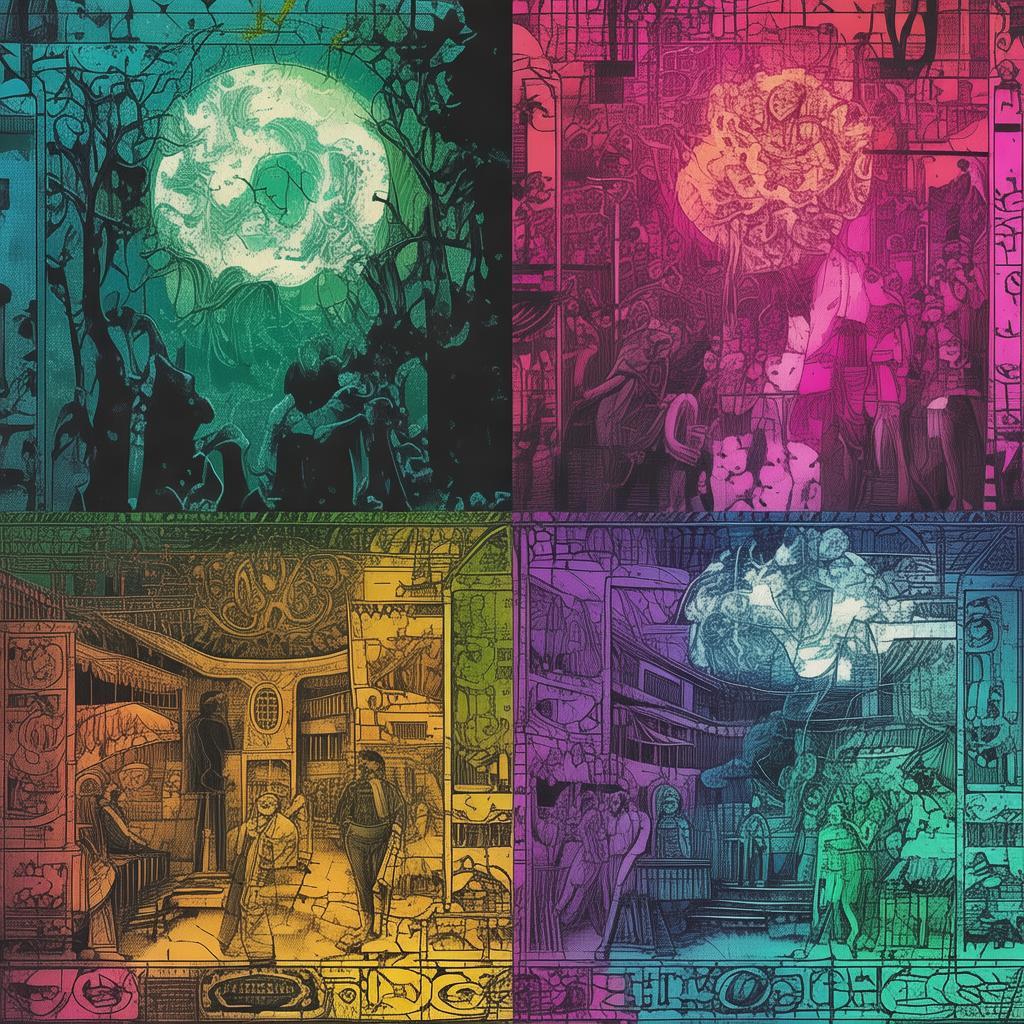The Editor's Rite: Ink, Coffee, and a Whiskered Secret
In the heart of a bustling metropolis, amidst the clatter of typewriters and the symphony of coffee machines, sat the editorial office of "The Inkwell," a literary journal with a reputation for uncovering the hidden gems of the literary world. It was here that the editor, a woman named Li Wei, was engrossed in a sea of papers, her eyes scanning the pages of manuscripts like a pirate seeking a treasure map.
Li Wei was known for her discerning eye and her ability to see through the veils of fiction to the truths hidden within. She had a knack for finding the next big thing, and her office was a testament to her success, filled with the stories that had launched careers and sparked debates.

On this particular morning, as the sun cast a golden glow through the window, Li Wei's gaze fell upon a letter tucked into the corner of a manuscript. It was an old, faded envelope, addressed to "The Editor," and sealed with a wax stamp that had seen better days. Her curiosity piqued, she carefully opened the letter, revealing a hand-drawn map and a cryptic note:
"To the editor who has the heart to seek the truth, this is a path to the past that may alter the future. Follow the clues, and you will uncover a secret that has eluded generations."
The map led to a series of locations, each marked with a specific date and a mysterious symbol—a whisker, etched in ink. Li Wei's heart raced. This was no ordinary letter; it was a challenge, a quest that promised to take her on a journey into the unknown.
She began her search, following the clues meticulously. Each stop brought her closer to the past, and the story behind the map grew more intriguing. It was a tale of love, betrayal, and a secret so dangerous that it could change the course of history.
The first clue led her to an old, abandoned café, where the walls were adorned with sepia-toned photographs of patrons long gone. Li Wei sat at a table, her coffee steaming before her, and began to piece together the story of a young poet named Yu Qian An, whose work had been banned by the government for its subversive nature.
As she delved deeper, she discovered that Yu Qian An had not only been a poet but also a spy, passing messages to resistance fighters through his verse. His love, a woman named Mei Lin, had become the key to his espionage, and their affair had been the ultimate act of rebellion.
The second clue brought her to a quaint bookstore, where she found a hidden compartment in a dusty book. Inside was a collection of poems, each one a piece of the puzzle. One particular poem stood out, its words haunting and beautiful:
"In the ink of night, I hide my truth,
In the heart of love, I seek my peace.
The whisker is a key, the past a sieve,
In the rite of editor's pen, the truth will be."
Li Wei's mind raced as she pieced together the final clue. The whisker was a symbol of her own past—a secret she had long buried. As a child, she had discovered her father's journal, filled with coded messages and cryptic notes that hinted at a secret he had never shared with her. The whisker was his signature, the key to unlocking a mystery that had haunted her for years.
The final clue led her to an old, decrepit building, where she found herself face-to-face with a man who looked exactly like her. It was her father, who had died years ago, but whose spirit seemed to have returned to reveal the truth.
"Li Wei," he said, his voice filled with emotion, "you are the key to the past, and the future. Your father's secret was meant to be discovered, to be shared."
As Li Wei listened to her father's story, she realized that the true secret was not the one she had been seeking. The real secret was the love and the legacy that had been passed down through generations, a love that had the power to transcend time and change the world.
The ending was not one of revelation but of resolution. Li Wei found peace in understanding her father's sacrifice, and the truth of her past was finally laid to rest. The ink of her father's journal had become the ink of her own story, and the coffee that she had sipped in the café had been a metaphor for the life she had lived, one filled with mystery and discovery.
With a sense of closure, Li Wei returned to her office, the letter and the map now nothing more than relics of a journey completed. She knew that the story of Yu Qian An and Mei Lin would continue to inspire, and that the rite of the editor's pen would continue to shape the future.
The story of "The Editor's Rite: Ink, Coffee, and a Whiskered Secret" was one of discovery, of love, and of the enduring power of the written word. It was a tale that would be shared, discussed, and remembered, a viral short story that kept readers glued to the page and sparked a global conversation about the power of secrets and the strength of the human spirit.
✨ Original Statement ✨
All articles published on this website (including but not limited to text, images, videos, and other content) are original or authorized for reposting and are protected by relevant laws. Without the explicit written permission of this website, no individual or organization may copy, modify, repost, or use the content for commercial purposes.
If you need to quote or cooperate, please contact this site for authorization. We reserve the right to pursue legal responsibility for any unauthorized use.
Hereby declared.









